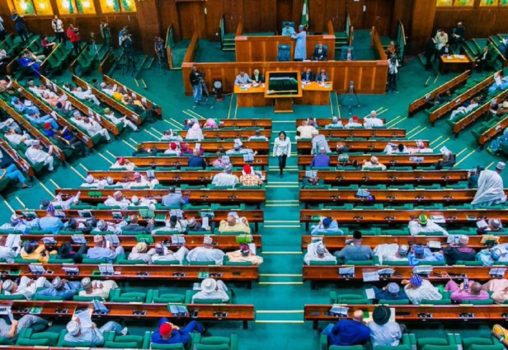 On Tuesday, the House of Representatives urged the Federal Government to suspend the implementation of the Samoa Agreement due to concerns over an alleged clause related to Lesbian, Gay, Bisexual, and Transgender (LGBT) rights.
On Tuesday, the House of Representatives urged the Federal Government to suspend the implementation of the Samoa Agreement due to concerns over an alleged clause related to Lesbian, Gay, Bisexual, and Transgender (LGBT) rights.
In a plenary session, Deputy Minority Leader Aliyu Madaki and 87 other representatives introduced a motion of urgent public importance, prompting the legislative chamber to direct its Committee on National Planning to investigate the agreement within four weeks and report back for further legislative action.
The Samoa Agreement, which serves as the overarching legal framework for the European Union’s relations with 79 countries—including 48 African, 16 Caribbean, and 15 Pacific countries—has recently sparked controversy. Critics argue that the agreement implies recognition of LGBT rights by the Nigerian government, conflicting with Nigeria’s anti-same-sex marriage law enacted in 2014 under then-President Goodluck Jonathan.
Minister of Budget and Economic Planning Atiku Bagudu, alongside Information Minister Mohammed Idris, addressed the issue in a press conference, emphasizing that Nigeria would not enter into an agreement that contradicts the constitution or the religious and cultural values of its people. Bagudu clarified that Nigeria signed the agreement to promote food security and inclusive economic development.
The Samoa Agreement, signed by Nigeria on June 28, 2024, came into public attention last week after Bagudu’s disclosure. The agreement, originally signed by the European Union, its 27 member states, and the 79 member states of the Organisation of African, Caribbean and Pacific States (OACPS) in November, aims to tackle global challenges such as climate change, ocean governance, migration, health, peace, and security.
A review of the Samoa Agreement by the European Parliament noted that while the initial draft contained provisions related to LGBT rights, these were later replaced with commitments to gender equality. Specifically, Article 2, Clause 5 of the final agreement states, “the parties shall systematically promote a gender perspective and ensure that gender equality is mainstreamed across all policies.”

FG, WIOCC Partner To Connect 3 Million Homes To Internet
Beatrice Ekweremadu Released From UK Prison, Returns To Nigeria
FG Convicts Over 100 Terrorist Financiers, Targets Financial Crimes
Tinubu Approves Inland Dry Ports In Ogun, Oyo To Boost Economy